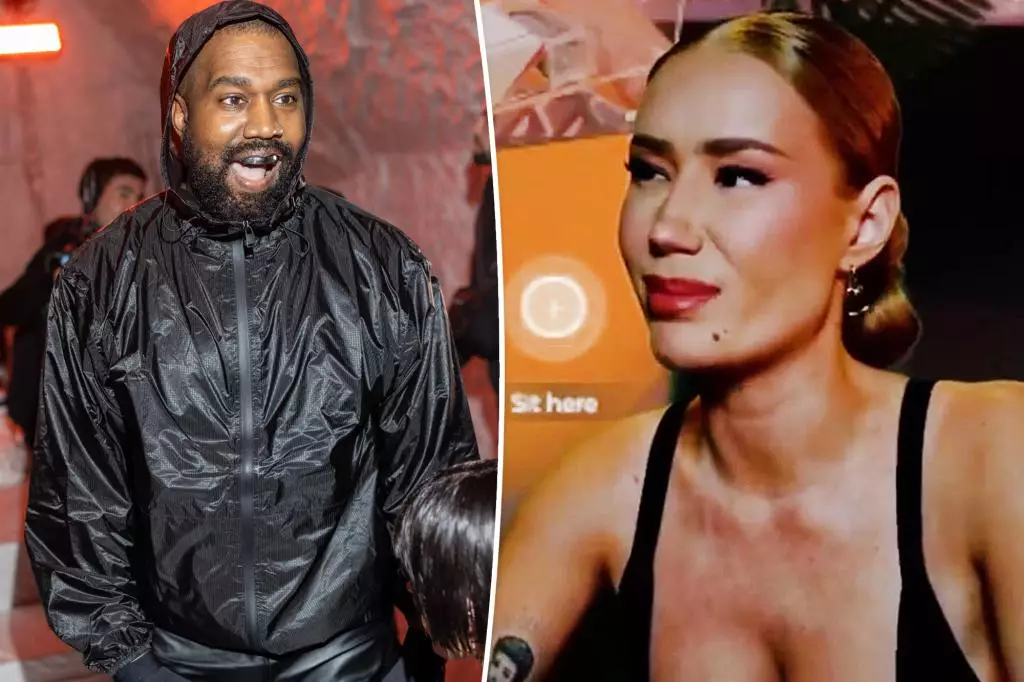In a shocking revelation, Iggy Azalea shared a bizarre and unsettling encounter from her early career involving Kanye West, the hip-hop mogul known for his controversial persona. The Australian rapper recounted a 2012 meeting during which West presented her with a slideshow packed with provocative imagery, including photos of Azalea herself. This scenario is perplexing on many levels, chiefly because one must consider the power dynamics at play in such an interaction. To look up to someone only to encounter a raw, unfiltered version of them, particularly one so far removed from professional boundaries, can be more than just awkward—it can be disheartening. Azalea’s response to the situation, mingled with disbelief, highlights the reality that even icons can hold troubling views on boundaries and respect within the industry.
Kanye’s Outspoken Nature: Humor or Harassment?
Kanye’s notorious candidness often volatizes any semblance of social etiquette. His flippant remarks about Azalea’s boyfriend, whose physical attributes he inexplicably queried, reflect a deeper issue prevalent within celebrity culture—a disregard for personal privacy. One can read West’s comments as a misguided attempt at humor, but it dances dangerously close to an invasive comment that many might find not just inappropriate but also indicative of a systemic issue in music culture, where men frequently overshadow women’s agency and autonomy. The implication that a man’s worth or sexual liberties can be quantified is not just a personal affront but poses significant ethical questions regarding the attitudes propagated in the media and by our cultural icons.
The Fallout: Iggy’s Response to Ye
In recent weeks, Azalea vocally criticized West, who now prefers to be called Ye, as tensions arose regarding their ex-partners and a notable interjection of her son, Onyx. The tweet where Ye asked to involve Onyx in a song under the guise of familial ties appeared to encroach upon Azalea’s desire for privacy concerning her child. She voiced her frustration in a poignant manner, highlighting that her son, who has no direct relationship with West, should remain untouched by the complexities and drama of adult industry interactions. This acknowledgement of the digital legacy and the precarious nature of online discourse surrounding children reflects a growing concern that parents in the public eye must navigate—a concern that celebrities frequently overlook.
The Broader Context: Male Privilege in the Industry
West’s controversial comments resonate within the larger theme of male privilege and the objectification of women within the entertainment industry. Such revelations do not occur in isolation; they echo hundreds of broader conversations on how women are treated in various sectors, especially the music and film industries. Azalea’s frustration is rooted not only in her personal experience but also in the more extensive implications that these interactions have on how women are perceived, respected, and represented. This raises the specter of accountability and the necessity for a cultural shift towards equitable relationships between artists, where respect and professionalism supersede shock value and sensationalism.
In the Eye of the Social Media Storm
The commentary surrounding Azalea’s statements ignites discussions on the nuances of celebrity culture. By taking to platforms like X to express herself, she embraces a double-edged sword; on one side, she gains visibility through her vulnerability, while on the other, she exposes herself to a barrage of criticism and cyber scrutiny. The interplay of personal narrative and social media highlights how public figures navigate the minefield of their public persona while attempting to maintain authenticity amidst the pressure of public opinion. Iggy’s call for personal peace for both herself and her child stands as a poignant reminder of the emotional toll these online exchanges can inflict, especially when they involve children.
In the wake of such encounters, it becomes imperative for artists and fans alike to reconsider how they engage with cultural narratives, stemming from the stories told by those within the industry. Thus, Azalea’s experience becomes not just a personal encounter but an emblematic case study illuminating the pervasive dilemmas of respect, privacy, and accountability in the world of entertainment, asking all of us to reevaluate the way we perceive and interact with our icons.

